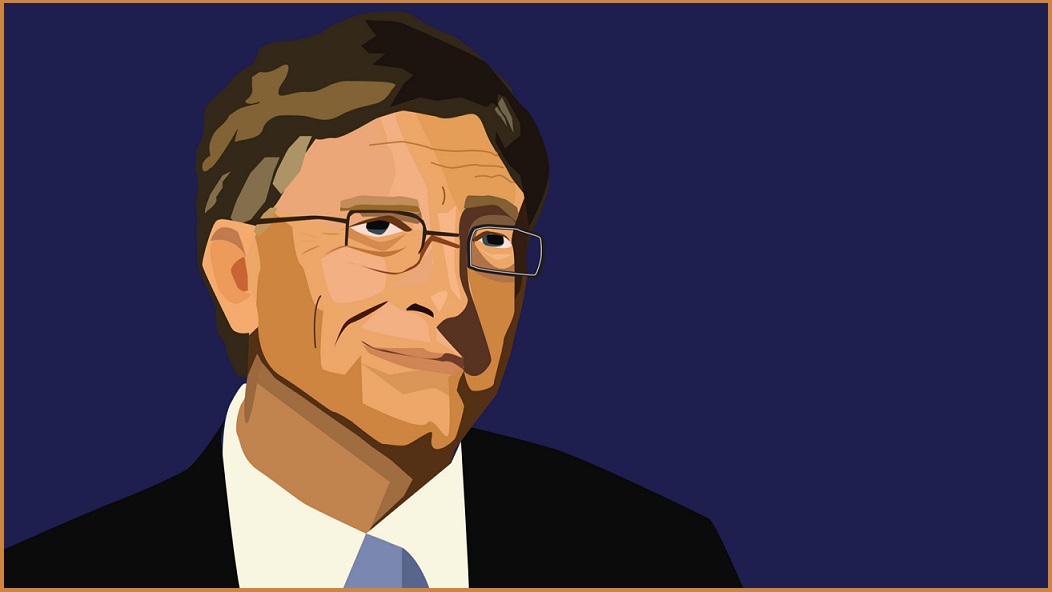Efforts to support the response and cure for coronavirus will get a $149m ($US100m) shot in the arm as Microsoft founder Bill Gates steps away from his board commitments to focus full-time on his work in philanthropy.
The decision, announced over the weekend in a LinkedIn post, sees Gates giving up his board positions with Microsoft to increase his focus on his philanthropic efforts in areas including global health and development, education, and climate change.
Gates will remain more casually affiliated with Microsoft – a company about which said he feels “more optimistic than ever” – as a technical advisor to CEO Satya Nadella.
Microsoft “will always be an important part of my life’s work,” Gates wrote, “and I will continue to be engaged with Satya and the technical leadership to help shape the vision and achieve the company’s ambitious goals.”
In a statement announcing the changes, Nadella said, “Bill founded our company with a belief in the democratising force of software and a passion to solve society’s most pressing challenges and Microsoft and the world are better for it.”
Gates is also stepping back from his board position at Berkshire Hathaway, he wrote, acknowledging the support of Berkshire Hathaway head and long-time friend Warren Buffett in engaging with the Bill & Melinda Gates Foundation (BMGF).
Leadership at both organisations “has never been stronger”, he said, noting also that Buffett has supported The Giving Pledge, a BMGF effort to commit the world’s richest individuals to philanthropic activity.
The Giving Pledge’s roster of more than 200 signatories includes tech luminaries such as WhatsApp founder Brian Acton and his wife Tegan, Salesforce founder Marc Benioff and his wife Lynne, and novelist and philanthropist Mackenzie Bezos, former wife of Amazon founder Jeff Bezos.
Investing to beat coronavirus
By uniting like-minded and similarly-resourced billionaires like himself, Gates has turned the BMGF into a catalyst for addressing global healthcare and social-welfare priorities.
The escalating coronavirus pandemic seems to have been a trigger for Gates to finally step away from his technology commitments – focusing instead on, among other things, the allocation of a tranche of funding that was announced last month to support efforts around detection, isolation and treatment of the virus, and to protect at-risk populations in Africa and South Asia.
BMGF was an early responder to the crisis, committing $14.9m ($US10m) to support the response effort in China in January – and subsequently committing $7.5m ($US5m) to help the COVID-19 response in Gates’s native Seattle.
As part of its up to $149m ($US100m) response, the foundation has subsequently committed $74.5m ($US50m) – matching a donation by independent philanthropic foundation Wellcome and doubling a gift by the Mastercard Impact Fund – to provide up to $186m ($125m) towards the effort to develop and deliver COVID-19 therapies.
That funding will support a new COVID-19 Therapeutics Accelerator that will work to streamline the movement of candidate coronavirus treatments to clinical assessment, use, and manufacturing.
Biotech and pharmaceutical industry partners will contribute their compound libraries and clinical data but an “accelerated pathway” for new medications is still a year or longer, with Wellcome director Dr Jeremy Farrar highlighting the importance of international partnerships to progress the work as quickly as possible.
“To get ahead of this epidemic we need greater investment and to ensure research co-ordination,” he said, “and continue to make sure advances are accessible and affordable to all.”
“Investing now, at scale, at risk and as a collective global effort, is vital if we are to change the course of this epidemic.”
Gates’s involvement in such efforts is just the latest of his philanthropic activities, which stretch back to his foundation’s efforts to bring Internet access to libraries in the late 1990s. This expanded to humanitarian causes like supporting AIDS vaccine research, preventing maternal deaths in developing nations, promoting reproductive responsibility, fighting cervical cancer, and funding research into malaria drugs and vaccines.
Gates, whose early development of operating-system software for emerging IBM computers helped Microsoft dominate the world of personal computing, stepped back from day-to-day involvement with the company in June 2008 and served as its chairman of the board until February 2014.
“As a member of the Board, he challenged us to think big and then think even bigger,” fellow board member John W. Thompson said, noting that Gates “leaves an enduring legacy of curiosity and insight that serves as an inspiration for us all.”










